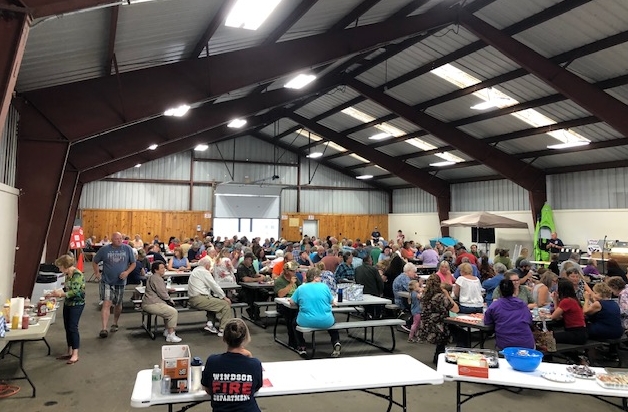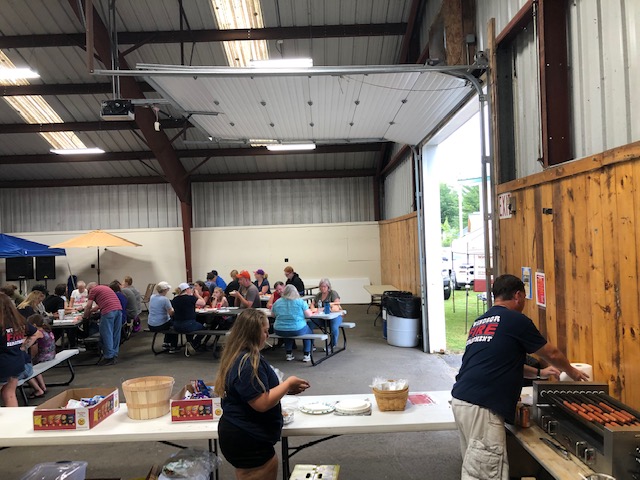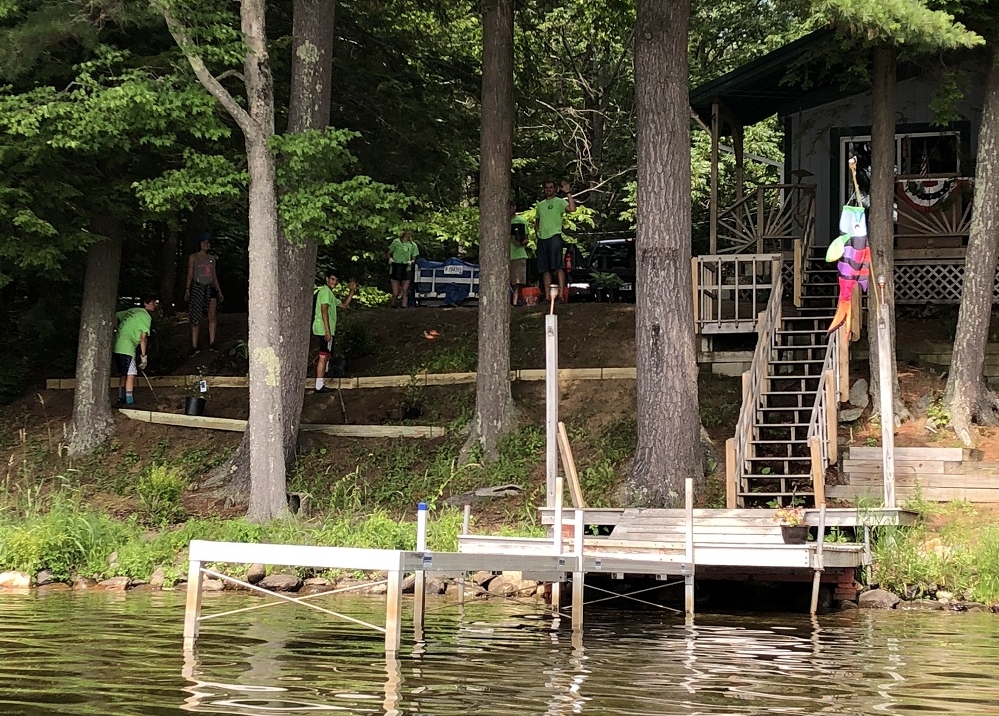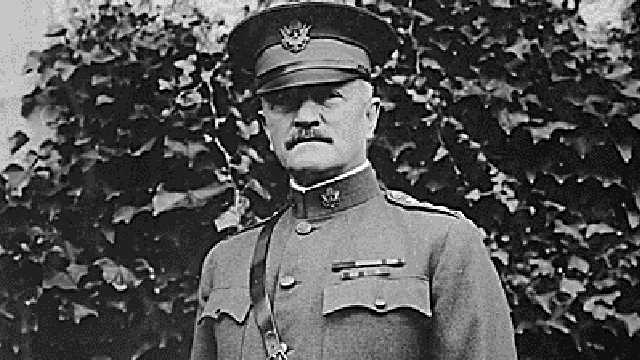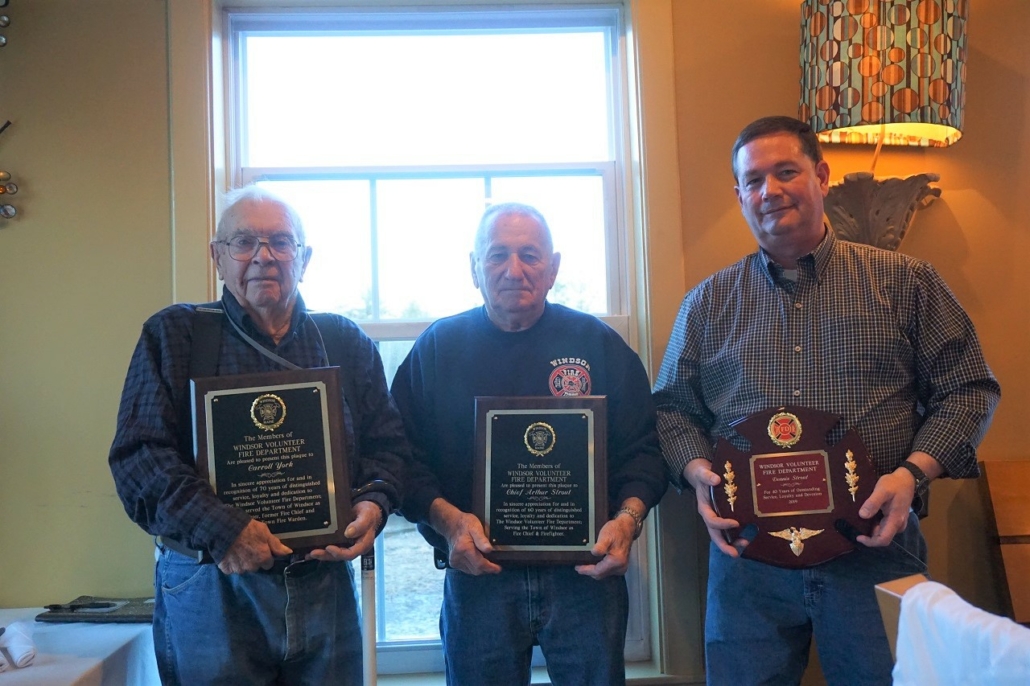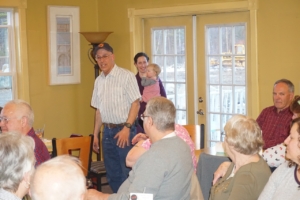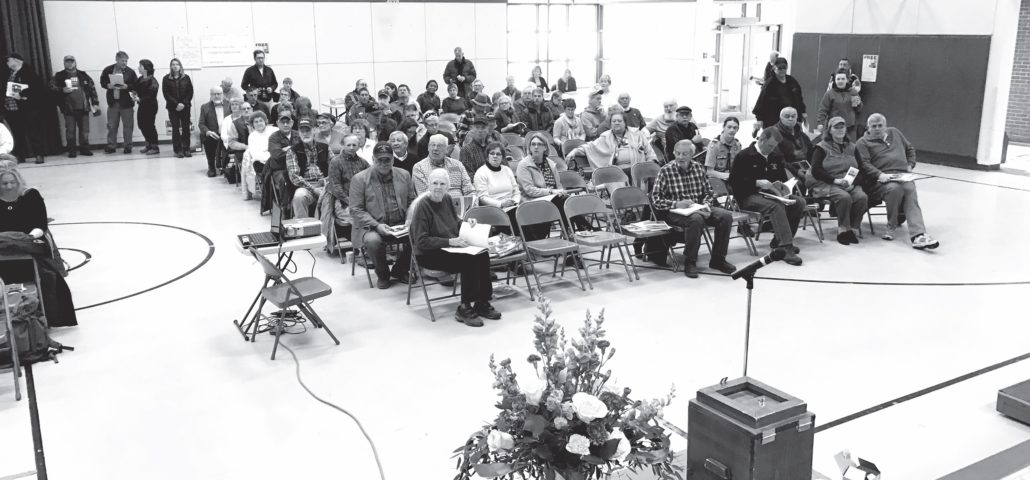Dog barking and the Veterans’ Memorial fundraising efforts were major topics at Windsor’s Selectmen’s meeting on July 9.
A recent dog barking incident sparked conversations about ordinances at the last two selectmen’s meetings. Animal Control Officer Kim Bolduc-Bartlett attended the July 9 meeting at the request of the Town Manager Theresa Haskell.
During the June 25 meeting, a resident requested re-examination of the Windsor nuisance ordinance and asked that it include wording regarding barking dogs. The resident expressed concerns over futile attempts to maintain tranquility in her neighborhood due to several barking dogs.
Currently, state laws do not address dog barking. Some municipal ordinances do. For example, Sidney’s dog nuisance ordinance states, “Any owner or keeper causing or permitting a dog to bark, howl, or yelp continuously for twenty (20) minutes or intermittently for one (1) hour or more shall be in violation of this section.”
The town of China has a kennel ordinance with similar wording, stating that “the owner or operator of a kennel…shall not permit the dogs therein to disturb the peace of any person in the vicinity of such kennel by barking, howling, baying, whining, yelping or other loud and unreasonably long or frequent periods.”
However, Windsor’s nuisance ordinance does not mention dog barking. Therefore state police and animal control officers are not able to proceed farther than checking on the animals’ welfare and making sure all animals are properly licensed.
During the June 25 meeting, the selectmen agreed to do additional research, contact the town attorney and re-discuss the subject during the July 9 meeting. On July 9, Bolduc-Bartlett presented copies of her reports on the dogs of whom the resident had complained. Since the resident was unable to be present, selectmen tabled further discussion.
Joyce Perry, chairman of the Windsor Veterans’ Memorial Committee, informed the selectmen about fundraising efforts for the Veterans’ Memorial, including a free concert by the Downeast Brass Band at 7 p.m., Thursday, July 25, at the Town Hall, featuring ‘60s music and discussion of the history of the music.
During the upcoming Windsor Fair, the memorial committee was offered two tables, one for items to sell and one to display information. The Windsor Historical Society offered the first table for free but planned to charge for the second. Haskell inspired the selectmen to each donate $5 to pay for the second table. She added her $5 to bring the total to $30: $20 for the table and $10 donated to the Veterans’ Memorial.
The Memorial will be located on Ridge and Reed roads and incorporate the existing monument. Original cost estimates for the project were over $45,000. Since 2017, over $14,500 has been raised through beano games at the Windsor Fair, flower sales, pie auctions, public suppers, other concerts and private donations. Windsor voters appropriated $19,000 from the last two budgets. In addition, J.C.Stone Inc., of Jefferson, donated two stone benches for the site. However, the committee still needs to raise over $11,000 to complete the project.
In her capacity as cemetery sexton, Perry provided an update on cemetery maintenance. The Windsor Neck Cemetery’s fencing has been replaced with poles and chains, thanks to the public works crew. While replacing the fencing, some granite with attached iron piping had been found. Due to safety concerns, the public works department will request permission from residents abutting the cemetery to remove the granite. A pile of rocks in the North Windsor Cemetery will be removed at the same time. If usable, all of the rock and granite collected with be repurposed on other projects.
In other business, Public Works Supervisor Keith Hall gave an update on preparing for the anticipated installation of a new diesel tank. The cement pad has been set and Hall is submitting drawings of the project’s layout to the state fire marshal for approval. Hall is requesting pricing for a 1,000-gallon and a 2,000-gallon double walled tank for comparison. Once installed, the tank will then be enclosed in a protective cement barrier. Although money for the tank was not part of the budget for the current fiscal year, selectmen deemed it necessary after John Moody announced his pending retirement. Moody has supplied the town with around-the-clock fuel service; selectmen want to have an alternative in place prior to snow plowing season.
The fire department also needs to find a source for after-hours fuel. Selectmen are discussing options for allowing firefighters to access the new tank.
Selectmen planned the final steps in acquiring the new Ford super-duty truck for the public works department. Arrangements will be made for the publics work crew to travel to Massachusetts to pick it up. Despite extensive research, officials could not find a locally-available truck meeting the town’s specifications.
The selectmen hold their next regularly scheduled meeting on Tuesday, July 23.
